Society of Hopeful Technologists: Survey Results
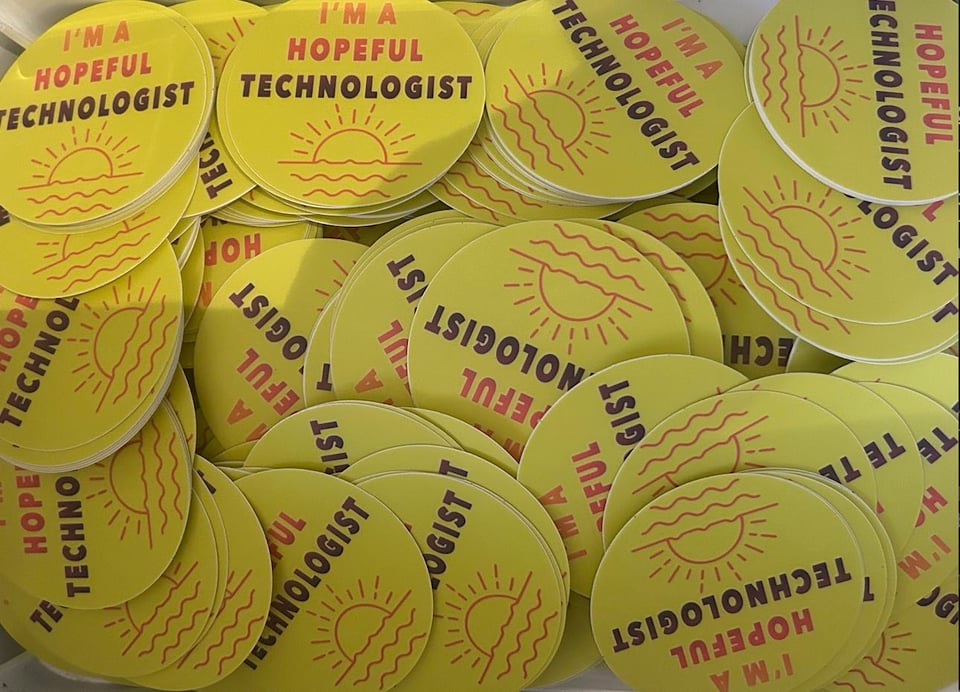
🥁 🥁🥁 The results are finally in: what do people want from the Society for Hopeful Techologists? 🥁🥁🥁
522 technologists based in the UK responded to the survey.
- 90% said the UK needs an independent advocacy group for socially progressive technologists
- 50% would pay a regular subscription to join such an organisation
- 75% said they didn’t feel represented by leading industry voices.
So that feels like a mandate to do something. If you want to get involved in shaping what that looks like let us know via this very short form. The very loose plan is to do some plotting over the summer and then launch in the Autumn.
Keep reading for a deeper dive into the results…
Who completed the survey?
We didn’t ask for demographic information, but we do know that respondents were from a wide range of disciplines and are broadly representative of different levels of seniority, with a skew towards those working in some kind of “public-interest tech” (government, public sector, nonprofit, health and education) although academia, industry and the arts were also represented. They survey was open in April and May 2025.
How do they currently feel?
The big themes were disempowerment and lack of representation.
Only 15% of respondents felt unequivocally able to raise concerns about the social, political, and environmental impacts of technologies, with the biggest barriers cited as a lack of organised or structured ways to engage, and a lack of knowhow. Some people who worked in government cited concerns about professional independence being a barrier.
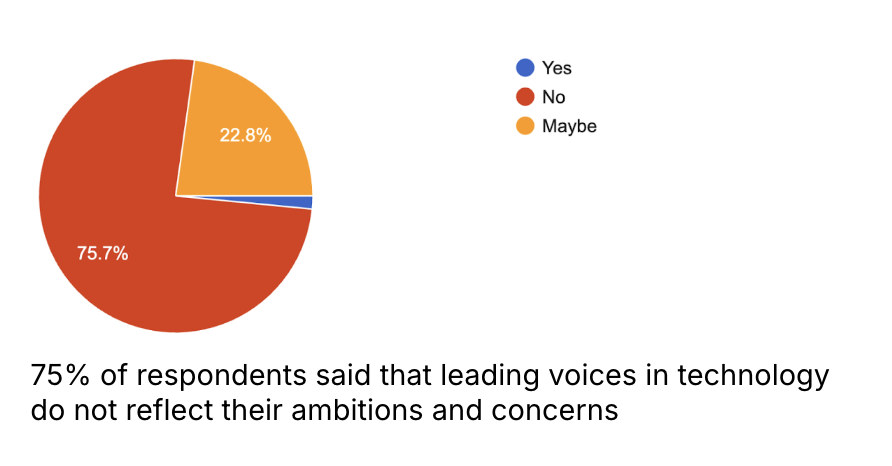
75% of respondents said that leading voices in technology do not reflect their ambitions and concerns, and 75% said they weren’t aware of a UK professional body that existed to champion or advocate for the concerns of socially progressive technologists.
Of the 30% of respondents who are already either a member of an existing professional body or affiliated with a civil society group, there was an appetite for:
a) more joined-up approaches to the social, political and environmental impacts of technologies
b) offering alternatives as well as pointing to problems
c) effective advocacy that would cut through and not only “preach to the converted”
What do people from a Society for Hopeful Technologists?
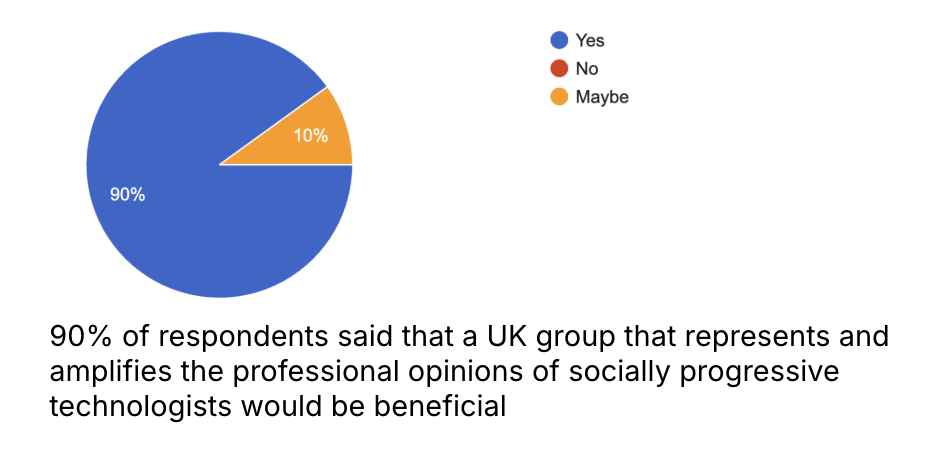
The good news is that 90% of respondents (or 470 people) thought a society that represents and amplifies the professional opinions of socially progressive technologists is needed, and the remaining 10% thought it might be.
Overall, the survey results show a strong mandate (85%+) for the following activities:
putting forward an informed, professional perspective on critical technology issues
championing a progressive vision and galvanises action around socially and environmentally positive uses of technology
engaging with government policies and consultations on my behalf and represents the views of socially progressive technologists
Overall, there was less demand for collective problem solving (78%), while networking (72%), improving skills (64%), and creating professional standards (62%) emerged as a potential secondary role for the organisation.
Who’s getting it right?
Internationally, there was a lot of love for both DAIR and EFF.
How should it be paid for?
46% of those surveyed would pay a regular membership subscription, while 50% said “maybe”. Meanwhile, the most controversial questions in the survey were about membership and receiving financial support from organisations and technology businesses, with 64% thinking there should be clear rules or limits around this.
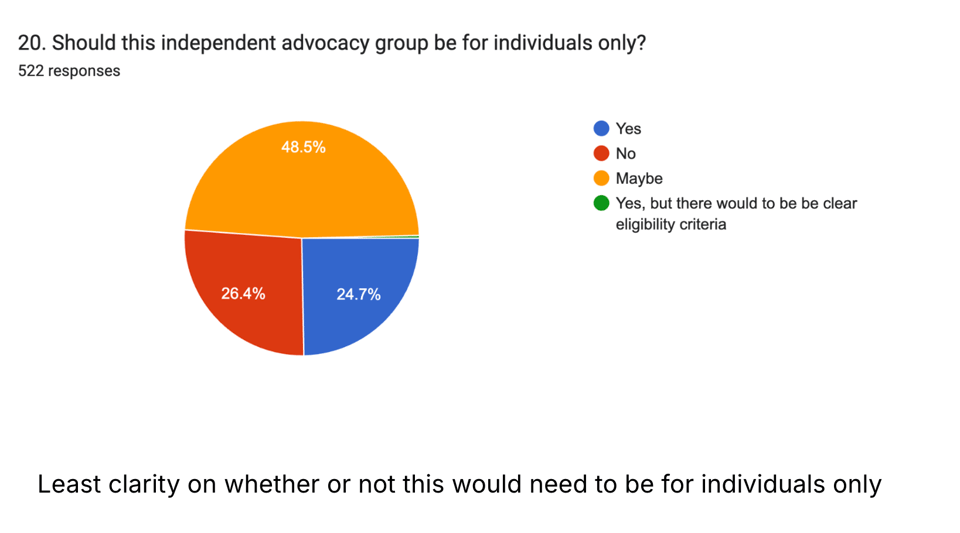
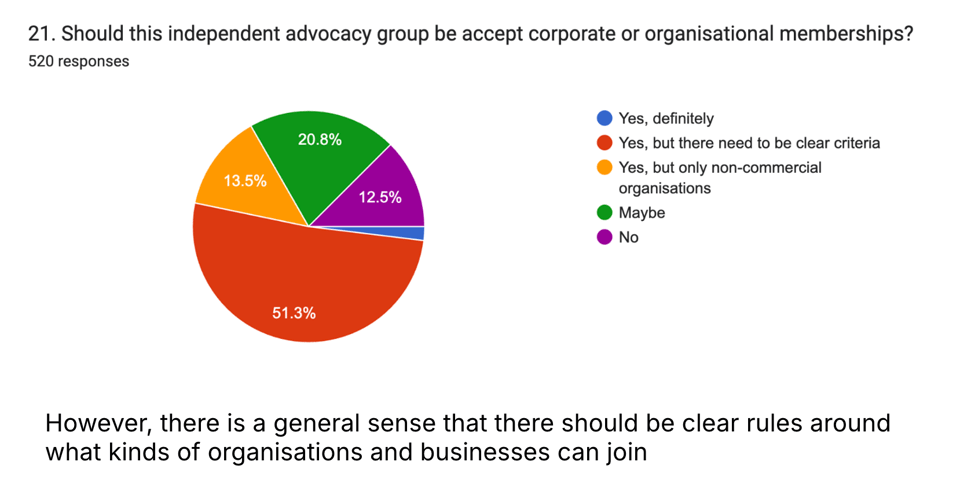
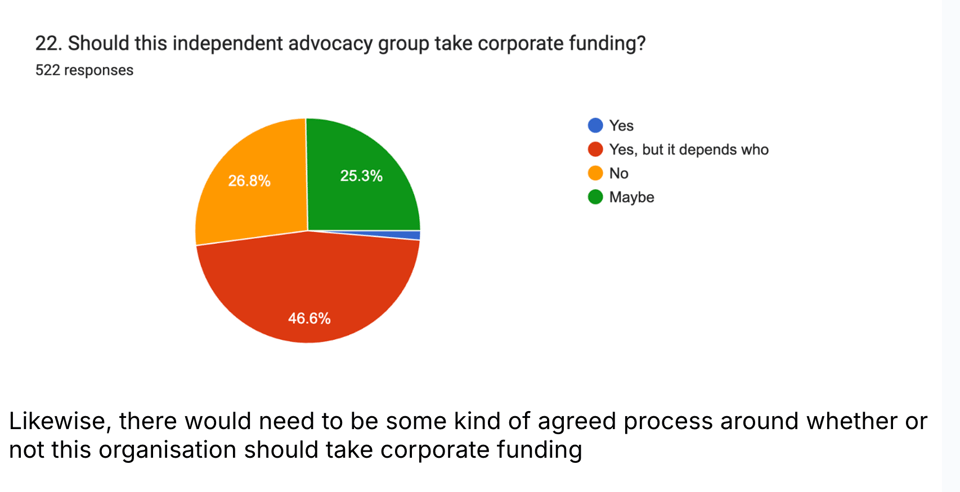
If you’d like to explore the results in more detail, there’s more detail in this slide deck.
Thanks for reading - and please share this newsletter with anyone else who might be interested.
Rachel Coldicutt
With thanks to Lyubomira Dimitrova, Anthony Dhanendran, Elinor Carmi, and Maria Jose Lira for support so far, and to Russell Davies for the invitation to speak at Interesting, which made it feel like a proper thing. Any mistakes in the interpretation of the data are mine and mine alone.